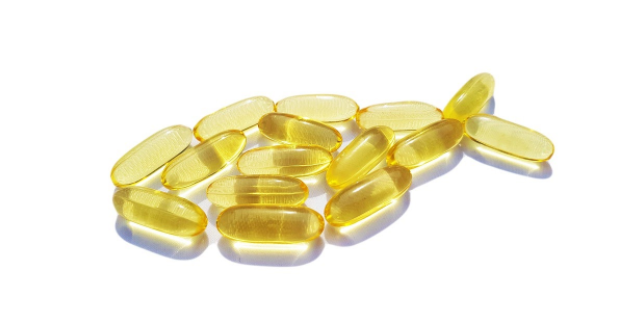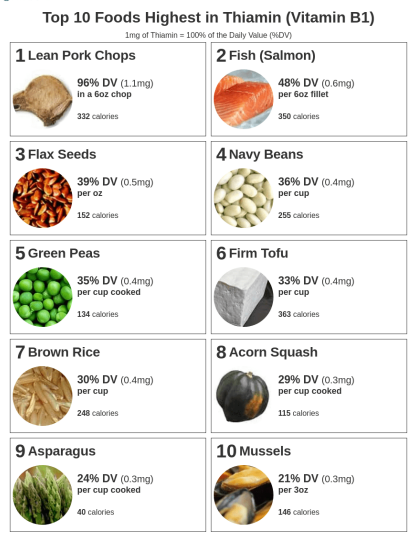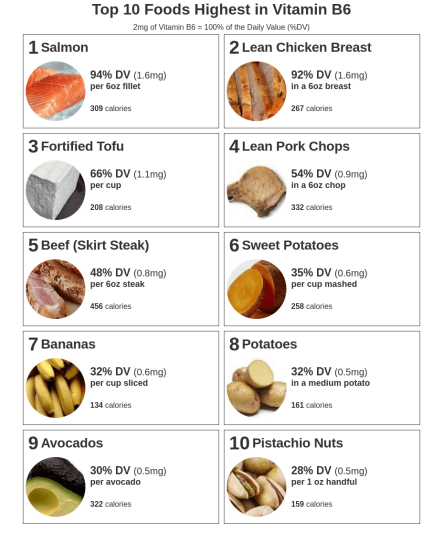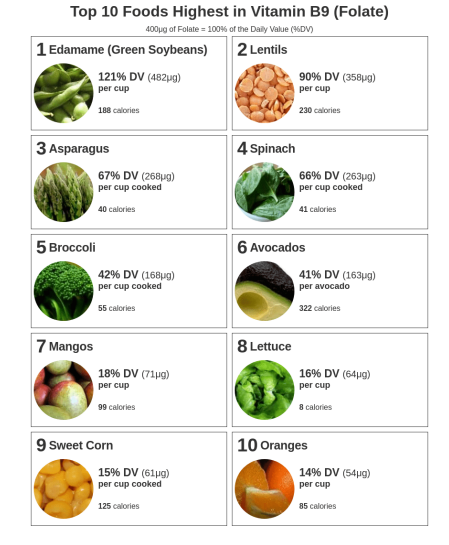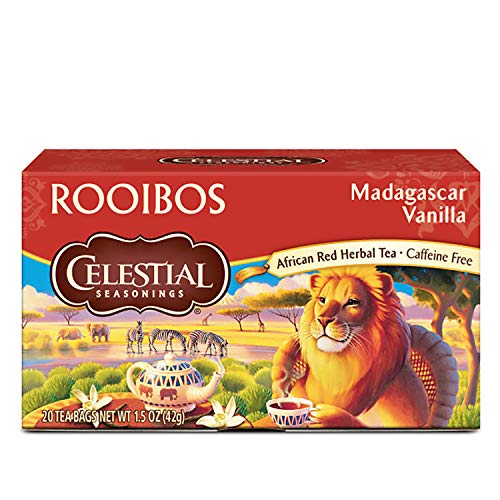Combating Stress With Food, Vitamins and Minerals
Combating Stress with Food, Vitamins, and Minerals
One of the tools in our arsenal to help manage the impact of stress on our lives is to be intentional with the foods that we consume. Another term for this is Mindful Eating. Being Intentional means, we make choices that we know are wise and in our long-term best interest.
During times of crisis and periods of prolonged stress, people often see a change in their eating habits. Many people seek out comfort foods, or they binge eat. Self-care usually takes a back seat when dealing with overflowing plates due to a lack of time, motivation, or energy. We should note that there are also people who have the opposite problem. Some lose weight during times of stress instead of gaining. Though not as common, many people lose their appetite and have to force themselves to eat.
There is a biochemical reason why the body and the mind begin to crave what we call “comfort food.” Comfort foods are typically high in fat or sugar and usually have low nutritional value. The sugars in carb-heavy foods increase our serotonin, which is one of the neurotransmitters in our body that makes us feel good. Serotonin also helps our bodies regulate sleep and appetite and help us create a general sense of well-being. Low levels of serotonin affect our mood and how well we handle fear and anxiety and are also associated with depression.
The carbs and sugar in comfort foods may make us feel relaxed and temporarily better, but they cause inflammation in the body, creating long-term health problems. The more we eat these foods, the more our bodies crave them.
Many people crave comfort foods because they associate comfort foods with their childhood or simpler and happier times. These foods may invoke happy memories or feelings of comfort and safety and represent more carefree and less stressful times.
We also tend to look for quick, cheap, and easy-to-fix food when we are stressed, when our schedules are packed, and when our finances, time, and energy are depleted. Unfortunately, junk foods and comfort foods deplete our bodies of needed good nutrition, minerals, and vitamins when we need them the most.
So here are a few foods that help fight off stress.
Fiber-Rich Foods
Fiber-rich foods are gut-friendly and can help lower stress. A review published in Nutritional Neuroscience links a high-fiber diet with reduced anxiety, depression, and stress. Another study suggests that fiber helps fight oxidative stress and inflammation.
To add more fiber to your diet, you can eat beans, green peas, berries, almonds, pistachios, flaxseed, sesame seeds, and greens, like kale and broccoli. Sweet potatoes are another nutrient-dense option. Whole grains like oats are an excellent choice as well.
Fiber helps balance your blood sugar and prevent spikes in your insulin levels. When blood sugar crashes, it can induce fatigue, anxiety, shaking, irritability, and trouble concentrating. There’s a hormonal response when blood sugar gets low — a rapid release of epinephrine and glucagon, followed by a slower release of cortisol and growth hormones. Eating unrefined carbs and sugary sweets can make us feel temporarily better, but they cause blood sugar spikes and crashes that end up making us feel terrible and do damage to our bodies.
PROBIOTICS
Our brains and gut are connected. In fact there has been much research that has come out that links brain health with gut health. Probiotics help the immune system, improve digestion, and help with the absorption of nutrients. Gut health is also linked to improving anxiety, depression, and mood. Although serotonin is well known as a brain neurotransmitter, 90-95 percent of the body's serotonin is made in the digestive tract. The gut also produces GABA, a neurotransmitter that plays a vital role in behavior, cognition, and the body's response to stress. You can take a probiotic supplement, but you can also find probiotics in certain foods. The most familiar fermented foods that naturally contain probiotics, or have probiotics added to them, include yogurt, kefir, kombucha, sauerkraut, pickles, miso, tempeh, kimchi, sourdough bread, and some cheeses. You should be aware that some people do not tolerate fermented foods and feel worse when eating them due to histamine intolerance. If you are sensitive to FODMAPS, you will also have difficulties with fermented foods as well.
VITAMIN C RICH FOODS
Some studies have found that high levels of vitamin C may help ease stress levels. One study reports that vitamin C reduced stress levels in participants taking 500 mg. per day and pointed to possible anxiety prevention. Another study looked at vitamin C and vitamin E and found a significant decrease in the vitamin C group’s anxiety levels compared with other groups.
NUTS
Nuts are full of nutrients, including B vitamins, healthy fatty acids, and help reduce stress. Almonds, pistachios, and walnuts may even help lower blood pressure levels. Studies say pistachios, in particular, can have a role in reducing stress levels.
Nuts and seeds are also high in magnesium. Magnesium is the fourth most abundant mineral in our bodies. Magnesium is an essential mineral that plays an integral part in many bodily functions. It helps regulate blood pressure, supports the immune system, and aids muscle and nerve function.Magnesium is known as an anti-stress mineral. But the relationship between magnesium and stress works in two directions: stress depletes magnesium, but magnesium counteracts stress. Any stress, whether mental or physical, will deplete magnesium from the body. Studies show a magnesium deficiency often accompanies heart attacks and high blood pressure.
In addition to Magnesium, stress depletes our bodies of Zinc and many vital vitamins and minerals like Vitamin B, Vitamin C, and Vitamin E. These vitamins and minerals are released from the body to fight inflammation and neutralize free radicals. Our bodies do this in response to stress, a poor diet, bacteria, etc. Without these valuable vitamins and minerals, our immune systems become weak, and we cannot fight off viruses and other pathogens. It’s no wonder why many people who are under constant stress tend to get sick frequently.
I want to include a note about certain nuts. Even though there are good fats and minerals in nuts, some people have digestive problems when they eat nuts. Certain nuts contain something called, Phytic Acid (Phytates.) Phytic Acid is a type of antinutrient. Antinutrients are compounds found in foods that interfere with the absorption of beneficial nutrients and minerals. Antinutrients are found in their highest concentrations in grains, beans, legumes, and nuts, but can also be found in leaves, roots, and fruits of certain varieties of plants. Not all antinutrients are bad, some actually have healthful benefits. It’s impossible to avoid them all, and you won’t feel good if you cut out every single one from your diet. Instead, you need to avoid the ones that cause problems in your gut or are triggers for you. Some nuts can be sprouted and then eaten with no problem.
Phytic acid is naturally found in the following foods:
Grains: Such as whole wheat, oats, and rice
Legumes: Such as black beans, pinto beans, kidney beans, soybeans, peanuts, and lentils
Nuts and seeds: Such as walnuts, pine nuts, almonds, and sesame seeds
Tubers: Such as potatoes, turnips, beets, and carrots
Zinc Rich Foods
Zinc is an essential mineral naturally present in some foods, added to others, and available as a dietary supplement. Zinc is found in many cold lozenges and some over-the-counter cold remedies.
Zinc is involved in numerous aspects of cellular metabolism. It is required for the activity of approximately 100 enzymes, and it plays a vital part in our immune function, protein synthesis, wound healing, and much more. Zinc also supports growth and development during pregnancy, childhood, and adolescence and is required for a proper sense of taste and smell. A daily zinc intake is necessary to maintain a steady state because the body has no specialized zinc storage system.
Zinc is depleted rapidly during times of stress. Zinc plays an essential role in strengthening our immune systems and the brain and body’s response to stress. Zinc is found in meat and poultry and has exceptionally high levels in oysters. Organ meats such as liver are a great source as well as certain seeds. Strict vegetarians may be at higher risk of zinc deficiency, so they should pay even closer attention to including plenty of this vital mineral in their diets when stressed. Here is a current list where you can find out about the nutrient levels of zinc in foods. https://ods.od.nih.gov/pubs/usdandb/Zinc-Content.pdf
When you’re zinc deficient, your body can’t produce healthy, new cells, and this leads to symptoms such as:
unexplained weight loss
wounds that won’t heal
lack of alertness
decreased sense of smell and taste
diarreha
loss of appetite
open sores on the skin
You can also take a zinc supplement if you feel you are not getting an adequate zinc intake from the food you eat.
Omega 3 Fatty Acids
Omega-3 fatty acids are a necessary component of our cell membranes. Our bodies need them to produce signaling molecules called eicosanoids, which help our immune, pulmonary, cardiovascular, and endocrine systems work correctly.
Some studies have shown taking omega-3 supplements or eating foods with omega-3 fatty acids can help reduce skin-related inflammation, moisture loss, and sun sensitivity. Dryness, increased acne, and redness of the skin may indicate an omega-3 deficiency. As omega-3 fats help retain moisture in the skin, they also help keep your hair healthy. Changes in hair texture, integrity, and density may indicate a low omega-3 status.
Many people with depression have low omega-3 levels. Studies show that omega-3 supplements may help improve mental health symptoms in people with neurodegenerative diseases and brain disorders, such as Alzheimer’s and dementia. Omega-3 fats are vital for brain function, so it’s crucial to get an adequate intake.
Omega-3 fats also play an important role in eye health and may help reduce dry eye symptoms. If you’ve noticed unusual eye dryness and irritation, you may need to increase your omega-3 fat intake.
Avocados contain omega-3 fatty acids. These healthy essential acids reduce stress and anxiety, boost concentration, improve mood, and help overall brain function. Avocados also consist of phytochemicals, fiber, and essential nutrients.
Eating fatty fish can help fight stress and depression and help prevent heart disease and strokes. Fatty fish include tuna, halibut, salmon, herring, mackerel, sardines, and lake trout. If you’re not a fan of fish, there are other whole-food options, like seaweed, chia seeds, flaxseeds, walnuts, and fortified food, such as certain brands of eggs and nut milk. You can also try omega-3 supplements in the form of fish oil capsules. It’s essential to get a good quality fish oil capsule. Look for one that has Omega-3, EPA, and DHA and is molecularly distilled.
HERBAL TEa
Sometimes it's the feeling that food or drinks induce, not their nutrients, that reduces stress. Drinking a warm cup of tea is one way to help make yourself feel calmer. Research has shown that holding and sipping a warm beverage increases feelings of interpersonal “warmth” and friendliness. There's a soothing effect of sipping a warm drink, regardless of the flavor — but certain herbs, like lavender and chamomile, have been shown to have a relaxing effect on their own. Many excellent tea blends are for calming stress. Some of the common teas that are good for relieving stress and anxiety are:
Peppermint, Chamomile, Lavender, Valerian, Lemon Balm, Passionflower
TULSI TEA
There is one type of tea that is especially good for stress, called Tulsi tea. Tulsi (otherwise known as Holy Basil) is an adaptogen herb, which helps protect the body against the toxic effects of stress. Tulsi has been associated in multiple studies with an improvement in mood and reduced anxiety levels. "One reason for this could be that the flavonoid compounds found in tulsi could help reduce the body's cortisol levels. Flavonoids are a type of antioxidant that is connected to helping the body deal with everyday stressors. They're also beneficial for brain health. Flavonoids help protect neurons in the brain and also play a role in cerebral vascular blood flow. For these reasons, tulsi tea could benefit brain health both in the short- and long term. Tulsi tea also contains small amounts of several nutrients, including calcium, vitamin A, vitamin C, vitamin K, iron, and zinc. One of the medicinal uses of tulsi tea is to treat bronchitis. Tulsi has antiseptic and antibacterial properties. If you have bronchitis or a sore throat, you should still see a doctor, but tulsi tea could play a supplementary role in treatment.
Tulsi is often paired with other herbs for medicinal benefits. If you want to help your brain health, try tulsi turmeric tea. Tumeric is one of the most potent anti-inflammatory herbs there is, and it helps lower inflammation in the body and brain. Both Tulsi and turmeric can help with cognitive function and protecting neurons in the brain.
Tulsi is connected to soothing a sore throat, and so is ginger. Since both herbs help increase blood flow, this combination could help alleviate headaches as well. Ginger is also calming to the stomach, so if you have a stomach ache, including it in your tulsi tea may help.
Ashwagandha is another adaptogenic herb connected to reducing stress and anxiety, so it pairs well with tulsi. It can taste pretty earthy on its own, which is another reason why it's great to pair it with sweet tulsi.
ROOIBOS TEA
Rooibos is a tea you might not be familiar with, but many studies have been conducted on it, and it is proven to help with anxiety and stress. It is naturally caffeine-free, sugar-free (but naturally sweet), and calorie-free. There are two critical compounds found in rooibos that interfere with the production of the stress hormone cortisol. These are Aspalathin and Nothofagin – both potent antioxidants. Rooibos also contains the antioxidant Chrysoeriol, which is proven to lower cholesterol, reduce your blood pressure, and help prevent your arteries from becoming narrow and hard. That’s important because constricted and hardened arteries can lead to a heart attack.
Rooibos also contains magnesium and calcium – both minerals which play a role in a good night’s sleep. Studies published in the European Neurology Journal confirm that calcium levels spike during deep sleep. The brain uses calcium to manufacture the sleeping hormone melatonin, which enhances the quality of your sleep. Other research has shown that magnesium deficiency can also lead to chronic insomnia (inability to sleep). Magnesium is also known as nature’s tranquilizer and has a calming effect on your nervous system, promoting deep sleep.
DARK CHOCOLATE
Dark chocolate contains large amounts of the same beneficial plant chemicals that we find in herbal teas. Just one ounce of dark chocolate has about as much of these plant chemicals as a cup of brewed black tea. Studies have shown that those who eat dark chocolate in moderation live longer than those who eat none.
Dark Chocolate in the diet can reduce stress in two ways — via its chemical impact and emotional impact. Chocolate feels like an indulgence, and that feeling alone can help reduce stress. This type of chocolate is full of antioxidants that help fight stress, and the flavonoids in chocolate are excellent for good heart health.
You want to look for chocolate that has a higher percentage on it. Dark chocolate contains 50-90% cocoa solids, cocoa butter, and sugar, whereas milk chocolate contains 10-50% cocoa solids, cocoa butter, milk in some form, and sugar. Milk chocolate is not healthy because of all of the sugar that is in it. It’s best to look for dark chocolate that has 70% cocoa solids. Aim for one ounce per day. I will post links belowe to a brand of dark chocolate my son loves that is sugar free.
CALCIUM
Most of us know that calcium is essential for strong teeth and bones. Your heart, muscles, and nerves also need calcium to function properly, and you may not know it also plays a part in regulating our mood. Calcium along with magnesium are some of nature’s sedatives with calming and relaxing effects. Calcium needs to be taken along with fat to be utilized by the body.
Your body doesn’t rely on magnesium to absorb calcium. But without it, calcium can become toxic, depositing itself in soft tissues, kidneys, arteries and cartilage rather than in bones where it has the greatest benefit. This can lead to some quite severe health conditions. Balancing calcium with the right amount of magnesium is important.
One of the consequences of a low-fat or dairy free diet can be a calcium deficiency. We all know that milk and cheese are excellent sources of Calcium, but not everyone can eat dairy. Almonds are also high in calcium, making almond milk a good alternative to cow’s milk for calcium. Almonds and almond milk also naturally contain fat, so calcium is readily available. A variety of fruits are also good sources of calcium, including oranges and strawberries. Flax seeds, sesame seed, and Brazil nuts, dark leafy greens like kale, turnip greens, and collard greens are also calcium sources.
An adult needs around 1000 mg of calcium each day. Calcium works closely with magnesium, vitamin D, and potassium to maximize its benefits. Foods that are high in calcium also tend to be good sources of potassium, magnesium.
Vitamin D
Every tissue in the body has vitamin D receptors, including the brain, heart, muscles, and immune system, which means vitamin D is needed at every level for the body to function.
Vitamin D is also the only vitamin that is a hormone. After it is consumed in the diet or absorbed in the skin, vitamin D is transported to the liver and kidneys and converted to its active hormone form. Vitamin D as a hormone assists with calcium absorption, helping to build strong bones, teeth, and muscles.
In addition to its well-known role in calcium absorption, vitamin D activates genes that regulate the immune system and release neurotransmitters (e.g., dopamine, serotonin) that affect brain function and development. Vitamin D deficiency is linked with depression, Seasonal Affective Disorder (SAD), high cholesterol, increased anxiety and stress levels. Adding just 1,000 IU of vitamin D per day can reduce:
Fatigue
Feelings of Depression or Anxiety
Joint Pain
Mood Swings
Muscle Cramps
Weakness
Foods that contain Vitamin D are:
Beef liver (cooked). 3 ounces: 42 IU.
Cereal, fortified with 10% of the daily value of vitamin D. 0.75 to 1 cup: 40 IU.
Cod liver oil. 1 tablespoon: 1360 IU.
Egg yolk. 1 large egg: 41 IU.
Margarine, fortified. 1 tablespoon: 60 IU.
Milk, fortified. 1 cup: 115-124 IU.
Orange juice, fortified. 1 cup: 137 IU.
Salmon (sockeye, cooked). 3 ounces: 447 IU.
Sardines (canned in oil, drained). 2 sardines: 46 IU.
Swiss cheese. 1 ounce: 6 IU.
Swordfish (cooked). 3 ounces: 566 IU.
Tuna (canned in water, drained). 3 ounces: 154 IU.
Yogurt, fortified with 20% of the daily value of vitamin D. 6 ounces: 80 IU
B VITAMINS
B vitamins play an essential role in energy production, cellular health, and neurocognitive performance. Bs are the first line of defense against stress because they are often the first micronutrients to be depleted during stressful times. B12 deficiency, in particular, is linked to low energy, depression, and fatigue. Unlike many other vitamins and minerals, we don’t store B vitamins in our bodies – they’re water-soluble, so they’re flushed out within hours if they’re not used.
Each of the B vitamins plays a crucial role in helping your body manage stress.
Vitamin B1 – thiamine
B1 Helps:
• stabilize your mood
• keep your nervous system healthy
• boost memory and concentration
Thiamine deficiency isn’t common in western countries, but factors that may increase risk are: alcohol dependence, old age, HIV/AIDS, Diabetes, bariatric surgery, dialysis, high-dose diuretic use
Symptoms of thiamine deficiency include loss of appetite, or anorexia; fatigue; irritability; reduced reflexes; Tingling sensation in arms and legs; muscle weakness; blurry vision; nausea and vomiting; decrease in heart rate and dizziness.
Vitamin B2 – riboflavin
B2 Helps:
• calm the nervous system
• regulate mood and energy
• metabolize fats and carbohydrates
Vitamin B2, or riboflavin, is required for proper energy metabolism and a wide variety of cellular processes. Riboflavin deficiency can lead to cracking and reddening of the lips, inflammation of the mouth, mouth ulcers, sore throat, and iron deficiency anemia.
Vitamin B3 – niacin
Helps:
• stabilize your mood; low B3 levels can lead to stress, irritability, low mood, and depression
• nerve health
• control blood sugar levels and digestion
Like all B vitamins, niacin helps convert carbohydrates into glucose, metabolize fats and proteins, and helps keep the nervous system working properly. Niacin also helps the body make stress-related hormones and improves circulation and cholesterol levels. Niacin supplements can cause flushing, rashes, headaches, nausea, and diarrhea. Consult your doctor before taking niacin supplements in high doses.
Severe Niacin deficiency, called Pellagra, can cause symptoms related to the skin, digestive system, and nervous system. Pellagra can be reversible with niacin supplementation prescribed by your doctor. Pellagra is extremely rare in the U.S. Most people get the recommended amount of niacin in the foods they eat every day. In the 1800s, Pellagra was common among poor Americans whose diets consisted mostly of corn, molasses, and salt pork -- all poor sources of niacin.
Vitamin B6 – pyridoxine
Helps:
• make neurotransmitters, such as mood-boosting serotonin
• support your immune system during times of anxiety
• support adrenal function
Long-term deficiency in vitamin B6 can lead to skin inflammation (dermatitis), depression, confusion, convulsions, and anemia. Studies show a diet low in vitamin B6 increases the risk of heart disease. Too much vitamin B6 taken from supplements can lead to nerve damage in the arms and legs.
Vitamin B9 – folate or folic acid
Helps:
support proper brain function
improve mood
prevent birth defects during pregnancy,
such as Spina Bifida
protects against Heart Disease
decreases the risk of Alzheimer's Disease
Symptoms of deficiency: weakness, fatigue, headache, heart palpitations, and shortness of breath. People at risk for deficiency include people with MTHFR polymorphism; people with tropical sprue, celiac disease, or inflammatory bowel disease; pregnant and lactating women; people with alcohol addiction.
Vitamin B12 – cyanocobalamin
Helps:
• brain function and development
• melatonin and serotonin production,
which is essential for mood and sleep
• makes DNA
Find it in eggs, milk, cheese, milk products, fish, shellfish. B12 is also added to some soy and rice milk products.
WATER AND STRESS
Like getting enough sleep, staying hydrated affects your body’s cortisol levels and can, therefore, reduce stress. Water plays a crucial role in how the body functions, and it can help our bodies recover and heal from physical and emotional stressors. It does this by flushing cortisol from our systems, along with other toxins. Water also helps regulate our moods by assisting the brain to work at its best. Water also helps flush out toxins from our bodies. Water also helps regulate our sleep/wake cycles. Being even a half-liter dehydrated can increase your cortisol levels. When your body doesn’t have enough fuel in the form of water and food, it will run on cortisol and adrenaline to keep you going.
Dehydration occurs when you use or lose more fluid than you take in, and your body doesn't have enough water and other fluids to carry out its normal functions. If you don't replace lost fluids, you will get dehydrated.
Here are the symptoms of dehydration
Feeling very thirsty.
Dry mouth.
Urinating and sweating less than usual.
Dark-colored urine.
Dry skin.
Feeling tired.
Dizziness.
Confusion
Less tear production
Constipation
Lightheadedness
Headache
Severe dehydration will likely cause:
excessive thirst
lack of sweat production
low blood pressure
rapid heart rate
rapid breathing
sunken eyes
shriveled skin
dark urine






